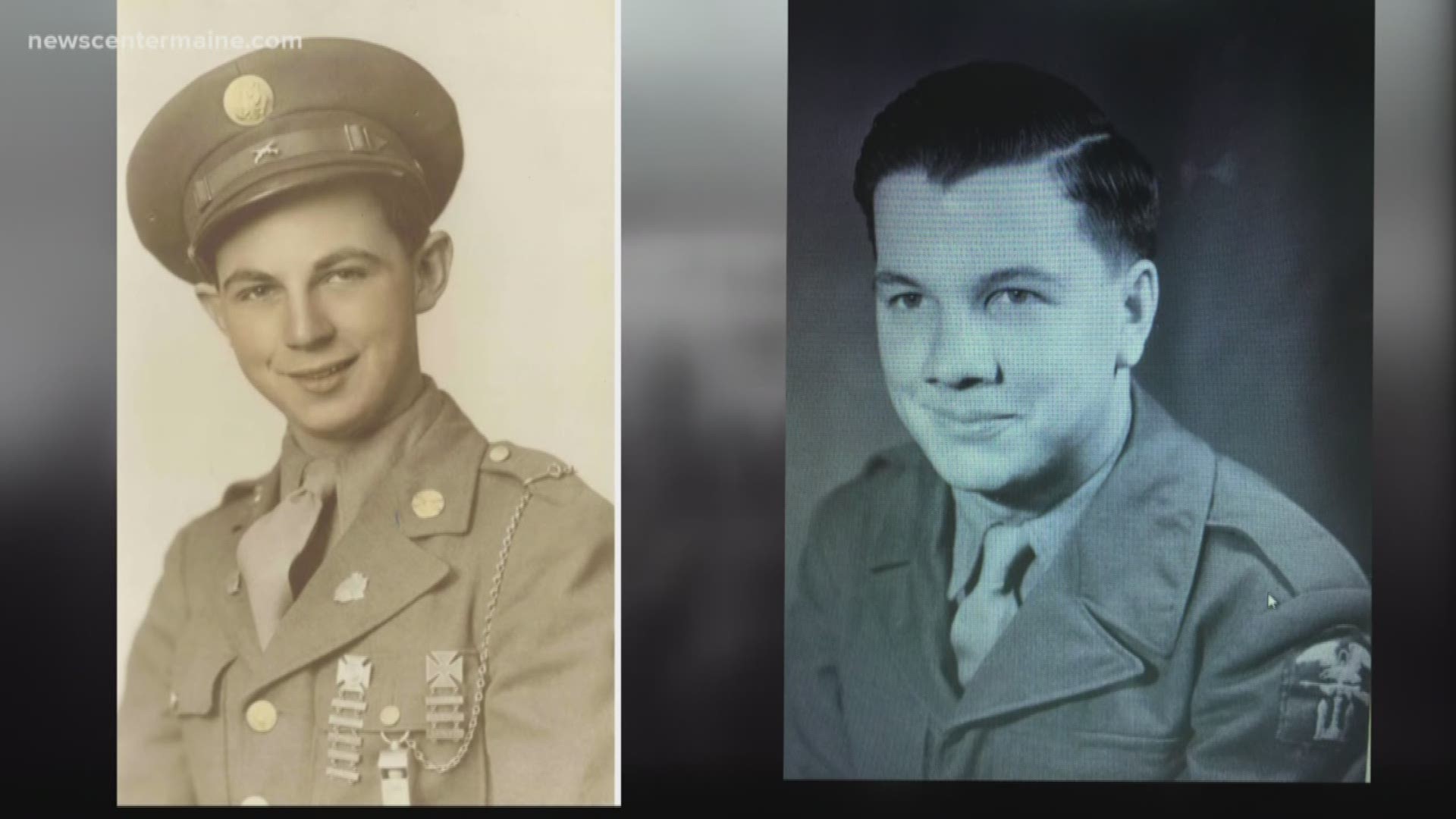LEWISTON, Maine — As the western nations -- the Allies of World War Two -- marked the 75th anniversary of the D-Day invasion on Thursday, Maine veterans of the war recounted their own memories of that historic battle and how it affected their own lives.
Rene "Pete" Theriault of Lewiston says he was an 18-year-old with just a few months in basic training when he was put on a troop ship to England, then on a British convoy ship for the Normandy invasion.
"The day they landed -- that night we spent on a Limey ship," says Theriault of the night of June 6. "And at daybreak, we were going to the beach to replace thousands of (soldiers who) were dead.”
His infantry unit landed at Omaha Beach, which had seen the most intense fighting the day before. He says those new troops were instantly aware of the carnage.
"They were floating all along the beach, the edge of the beach. Where guys jumped off (landing craft) in deep water, they drowned and washed along the beach. There were hundreds," he says.
"The thing I remember most," Theriault added, "The first day a guy’s walking along holding an arm, asking, 'Who is missing an arm?' 18 years old -- never seen anything like that."
RELATED: Sens. Collins, King are in France for D-Day anniversary
RELATED: D-Day 75: Nations honor veterans, memory of fallen troops
Those horrifying sights of combat also awaited Ralph Sylvester, who would land at Omaha Beach about a week later. Sylvester was a combat engineer, waiting in England to ship out. He says they knew the invasion was coming but didn’t know when. However, he says his unit knew it was close when the leaders of the Allied forces showed up at the tent his company was guarding.
"There was a field tent set up, and our company happened to pull security around it, and that’s when I met General Eisenhower, General Bradley, Montgomery, and some others that planned the invasion."
Sylvester also says when his ship landed in Normandy, there were still bodies in the water.
"And we found out that off the beach not too many miles, there were two cemeteries (with) five-thousand each."
Neither man had seen combat before, and few (if any) in their units had been exposed to battle before landing. Theriault says they made their way inland, into Normandy, then across France, and eventually to Germany by war’s end. He earned a Purple Heart and a Bronze Star but says his primary goal was survival.
"The thing I found out after a couple weeks -- I don’t care how smart you are or how tough you are. It's just luck. I could be talking like we are now. A shell lands -- you get killed, I don’t get a scratch."
For Sylvester, the war after D-Day was intense, as his unit cleared minefields and built bridges, so following troops could cross Europe’s many rivers on the way to defeat Germany.
"And we’d go ahead of the infantry many times. They’d say, 'Where are you going?' 'Oh, we’re going up the road a piece.'”
Both veterans say they didn’t dwell on their wartime experiences after returning home. Instead, like millions of others, they put away uniforms and returned to civilian lives.
But both say with the 75th anniversary of D-Day, those memories are still strong -- of the moment in history that began their time of war.

